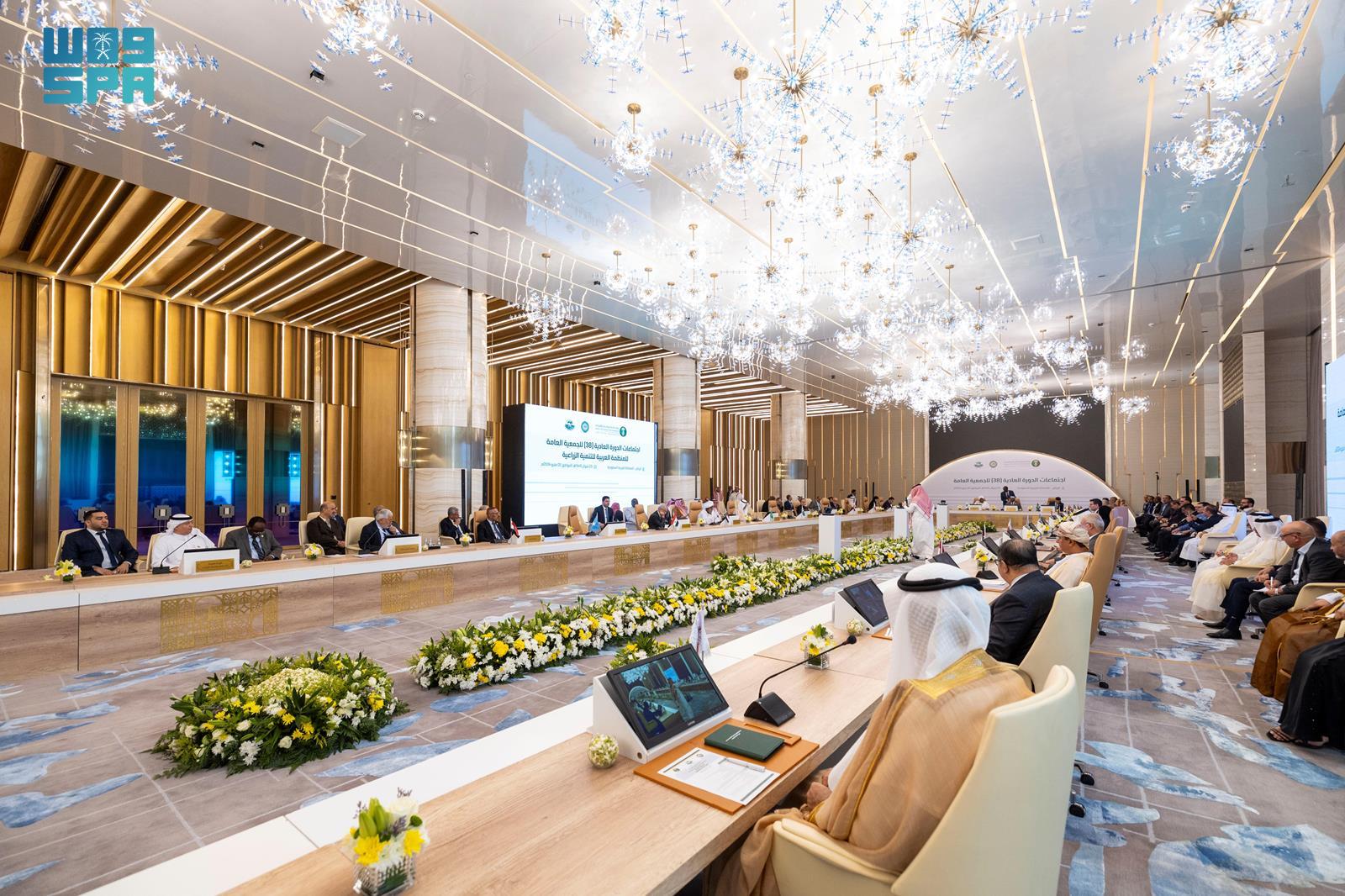Saudi Arabia Calls for Unifying Arab Efforts to Face Environment Challenges in Region, World

Riyadh, May 2, 2024, SPA – Minister of Environment, Water, and Agriculture Eng. Abdulrahman bin Abdulmohsen Al-Fadhli, the president of the 38th General Assembly of the Arab Organization for Agricultural Development (AOAD), has stressed that the Arab region is rich in biodiversity, natural resources, capacities, human resources, and diverse agricultural environments, calling for unifying Arab efforts to address the many unprecedented environment challenges facing the region and the world.
Al-Fadhli made his remarks during his speech at the opening of the 38th General Assembly of the AOAD, held today in Riyadh, in the presence of the Director of the Department of Arab Organizations and Unions at the Arab League Dr. Raed Al-Jubouri, Director-General of the AOAD Dr. Ibrahim Al-Dukhairi, Minister of Agriculture and Irrigation of Somalia and former President of the general assembly Assad Abdul Razzaq, and ministers of agriculture of members of the General Assembly of the organization, and several specialists and experts from inside and outside the Kingdom.
Al-Fadhli noted that the Arab region has opportunities to utilize technology and innovation, invest in agriculture, and improve agricultural practices to become more productive, efficient, and sustainable in water and natural resources usage. He also highlighted the importance of enhancing regional and international trade and cooperation and benefiting from international organizations, which makes us look optimistically towards the future of agriculture to enhance cooperation and solidarity among the region's countries.
The minister added that the Arab region and the entire world are facing unprecedented environmental challenges that require utilizing the region's relative advantages and unifying efforts to overcome them. He pointed out that the top challenges include water scarcity, desertification, land and environment degradation, climate change, increasing conflicts, lack of security, and economic shocks, in addition to the spread of pandemics and disruptions in food supply chains, which affect the lives of millions across the Arab world.
Al-Jubouri underscored that food security is an integral part of Arab national security, adding that the COVID-19 pandemic has revealed the danger of relying solely on global supply chains. The Russian-Ukrainian war has underscored the necessity of preparing for decreased imports, especially grains, which alone represent half of the Arab food gap. He highlighted the importance of adopting the Arab sustainable agricultural development strategy and other initiatives to address these crises.
Al-Dukhairi highlighted the importance of developing strategies to achieve agricultural sustainability, rural development, and food security, launching necessary initiatives and partnerships to support agricultural development at the regional and international levels, and supporting smallholder producers and farmers. He noted that the organization supports all agricultural fields, biodiversity, and biological diversity and welcomes the exchange of expertise, especially since Arab countries possess unique human experiences.
Abdul Razzaq pointed out that this session comes amid several challenges facing Arab countries, regional and international crises, and conflicts that have exacerbated food security challenges, food and supply chain crises, and rising food prices. These require supporting food security initiatives and smallholder farmers, enhancing and unifying efforts to achieve sustainability in agricultural supply chains, and reducing food waste and loss.
--SPA





